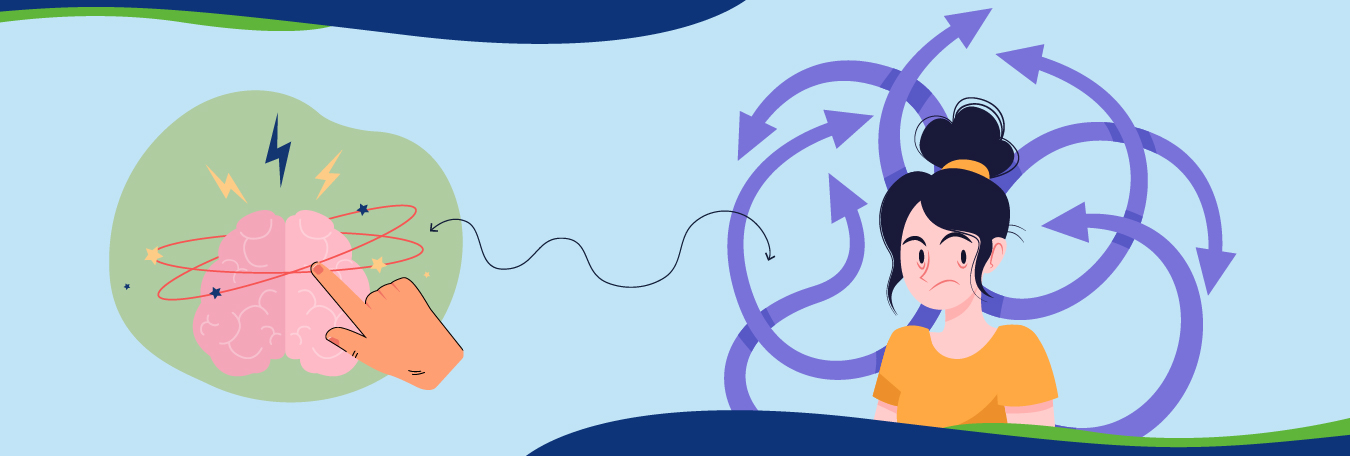For working people, the hunt for a healthy work life balance looks impossible.
Many of us are jugglers when we switch between heavy workloads, relationships, and family responsibilities.
It is no wonder that many Americans describe their conditions as “super stressed”. And this is not a balanced or healthy life.
We are in a rush to complete all the work related to the office or home. This way, we don’t notice that as our level of stress is high and our productivity is dropping.
Stress can bulldoze our attention. It can make us short-tempered or depressed and can affect our private and professional lives.
With the passage of time, stress also destroys our immune system. It becomes the cause of multiple diseases like flu, cold, backaches, and heart disease.
The research shows that long-lasting and continuous stress can multiply our chances of a heart attack or high blood pressure.
While we all need stress to spur us into activities and help us perform well, everywhere. The magic word to manage stress lies in “balance”.
A healthy lifestyle in work life balance is an achievable goal.
When a person is happy in their job, they are constructive and prefer to stay in their job.
What is a healthy work life balance, and how to get it!
Work-Life Balance
Work life balance is defined as the stability between a person’s professional duties and personal life activities.
It involves how a person actually handles their time and power to perform tasks at home or the office, in their leisure activities, and in self-care.
Although the phrase “work-life balance” sounds good, some people suggest “work-life management” might be a more appealing description. They acknowledge that work or family demands may fluctuate at different times.
It is not about that you are splitting between home and office 50/50, but rather about feeling normal and relaxed in both areas of your life.
Employee work life balance can include you have met office meeting deadlines and have time for loved ones, family, and hobbies. You have proper sleep and are eating well, and you don’t worry about office work anymore.
Read More: Mental Health Tips For Physical And Emotional Well-Being
Work/Life Imbalance
When a person finds it difficult to manage work life balance, it is an imbalance.
It happens when the demands of professional responsibilities outweigh one’s personal life activities.
It brings in an “off-kilter” feeling in daily life. This imbalance means your time and energy are used more on work than on personal life and other activities.
This imbalance can be a source of guilt for working parents, which suggests that a more fitting term might be “work life management”.

Common Reasons for Work-Life Imbalance
There are many factors that add to an imbalance in life and work. That could be:
- Increased work responsibilities and longer working hours.
- Your care for children and mounting responsibilities at home.
- Stress at work
- Pending works, and OCD
- Working beyond expectations and internal compulsion, which might indicate workaholism.
Read More: What Is Emotion-Focused Coping?
Effect Of Imbalance And Stress On Mental Well-Being
The imbalance between work and personal life can harm mental well-being. It is often caused by stress and a lack of clear boundaries. When a person feels dissatisfied or experiences an “off-kilter” balance, it can lead to a struggle, poor mental and physical health, and a drop in quality personal time.
These negative impacts are:
Burnout
Burnout can be caused by too much emphasis on the job. Sometimes it happens due to feelings of exhaustion, emotional drainage, and lack of motivation. Over half of Americans experience difficulty with work life balance. They find it difficult to maintain mental health.
Increased Stress and Anxiety
When a person finds it difficult to set boundaries and cannot mentally disconnect from work tasks, it can lead to persistent stress and anxiety. This can become the cause of emotional flux and frequent mood swings.
Physiological Issues
When a person is a workaholic, it can drive them with an internal compulsion to work beyond expectations. It can also lead him to physiological problems due to heightened stress.
Neglected Personal Life and Relationships
When you spend too much time working due to blurred boundaries, it can negatively influence relationships and leave insufficient time or emotional capacity for loved ones. It can also lead interest loss in hobbies and social engagements.
Decreased Work Performance
When a person is in continuous stress and fatigue, it can diminish an employee’s value, focus, and productivity that leading to increased errors and lack of motivation.
Long-Term Mental Health Issues
There might be a contributing mental health issue, like stress leading to anxiety, that leads to depression, and so on. Long neglect of work-life balance can add to chronic mental health problems.
Read More: What is Depression ?
10 Tips for Setting Boundaries For Work/Life Balance
A person can set effective boundaries, and they can implement many proactive strategies. Here are tips for work life balance.
1- Communicate Clearly
You can start a personal discussion and discuss your problems with your near and dear ones. They can help you manage your tasks, whether in-house or in the office. It might be helpful in any way. Discussing your emotions with your loved ones also helps to reduce stress and maintain your mental health.
You can also discuss your work-related problems with your seniors, colleagues and set the work boundaries.
You should clearly express your needs and the reasons behind your mental stress. Set the boundaries and explain them to them. Once strategies for work life balance are set, notify your team members so they can respect them.
2- Define Work Hours and Routines
Set the start and off time for your workday and try to stick to them. Form a shutdown routine to help transition from work mode to home mode. Stop when the working hours are over and sketch a line between work and home.
3- Create a Designated Workspace
Even if you can’t separate home and office when doing work from home, you can manage an area for work. This physical separation helps signal your brain about starting work or ending it. This is an act to set an important boundary between work and life.
Read More: How to Deal With Crippling Anxiety?
4-Leverage Technology
The use of technology can be a good start. You can start a “do not disturb “mode to keep away from messages or notifications that can distract you from your work. Mute notifications and turn off social media notifications during working hours can give you focus.
5-Practice Time Management
Use the time management apps and switch on during working time and turn off when the time finishes. It will help you focus and learn time management. Allocate specific time for break, rest, and relaxation during work. A little break can help your mind be active again.
6-Learn to Say “No” and Avoid Overcommitment
It is always good to say no when there is a need. It is acceptable to say “no” to additional projects and work other of your work time frame. You should know about your capacity and set practical expectations for yourself and others to prevent burnout.
7-Negotiate Flexibility
You should ask for flexible working hours from your boss or seniors. If such arrangements are possible, it can help you balance work and life. It can create conditions where you can manage your house chores and tasks in advance.

Read More: Defining Emotional Intelligence
8-Prioritize Breaks and Self-Care
Your self-care is as important as mental care. Find some time to manage your well-being. It is important for mood enhancement and self-love. When a person is physically fit, they can also be mentally fit. Regular break is a need for mental and physical health. It can actually increase productivity.
9-Seek external support for mental health
You can find external support through counseling with health practitioners and psychiatrists. They have support groups, workshops to strengthen boundaries to set time management skills, and navigate complex situations.
10-Revisit and Adjust Boundaries
If your planned routine and boundaries are not enough or are not suitable, you can set them again or renew them. Adjustment of job roles, personal circumstances, and work dynamics evolves. You can make them effective and relevant.
Read More: What Are Daily Affirmations?
Mental Well-Being, Stress Management, And IE Behavioral Group
Mental well-being is the emotional, psychological, and social level of a person.
It relates to how a person thinks, feels, and functions in their daily lives. It reflects their capability to handle stress and to make proper decisions about life.
Enhanced mental health is defined as having emotional strength, clear thinking, and good judgment of a person (cognitive function), and a sense of fulfilment and purpose in life. It allows a person to enjoy everyday activities and manage their stress.
However, if you can’t manage stress and find help, we are IE Behavioral Group, are here to help. You can discuss your problems, stress management-related issues, and coping strategies. We can help on every scale. Our psychiatrists are experienced and can help you live a healthy, balanced life at the office or at home. Call now and book an appointment.




